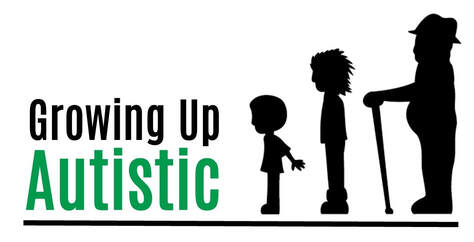
By Trevor Pacelli
“Cheer up! Stay positive! Always look on the bright side of life!” Wherever we go, at home, at school, or at work, we are always pressed upon by our peers and media to keep up a grin as a solution to hard times. Anything besides happy, we are expected to think that something is wrong with us. If we get angry, we get called aggressive. If we are disgusted, we get called judgmental. If we are fearful, we get called cowardly. If we are sad, we get called negative.
What the Disney Pixar movie Inside Out teaches us is that we have multiple emotions for a reason: each one makes up who we are, that means we should not feel ashamed to express tears of sorrow when necessary. No matter what our surroundings try to tell us, it is not always a good thing to keep a happy face. It’s even more important that we make sure people with ASD understand this.
With every situation of moving or switching schools, all sorts of emotional upsets overwhelm a savant’s mind like an overfilled glass continuing to be filled. Six-Word Lessons on Female Asperger Syndrome, Lesson #39: Change is Devastating for an Aspie. Six-Word Lessons on Growing Up Autistic, Lesson #72: Moving Starts a Whole New Chapter. Although I was one of the lucky few who lived in the same house all his life up until graduating high school, I still had to go through uncomfortable major change when transitioning from one school up to the next. The types of thoughts going through my head included: How much harder will the work be? Will I be in a class with this person? What do I do if I get lost in the building? How mean will the teachers be? But my problem was more with how people reacted to my concern. When I expressed my concern about going to a new school, the most common response I heard was “deal with it, it will be fine.” It did not help me at all in my worries. It leads me into the one thing that I dislike the most about peoples’ reaction to another’s distress: their lack of understanding. My parents could also say they have been a little guilty of this too, but far too often I have been flatly told how I should feel, which was always to be happy, without much regard to how I was feeling in the present state. At the time, I didn’t know better, but growing up allowed me and my parents to realize that when you have autism, you can’t just auto-switch from one emotion to another. It takes time and a quiet attitude. I was even bad at faking an emotion. All through my childhood, if I was upset about something, no matter my situation, I made sure everybody knew. I could not even just fake a positive attitude, because it would have been too much work for me to handle. That said, I’m better at it now, but there was a time, especially in my teen years, when my emotions were expressed exactly how I was thinking them. Six-Word Lessons for Autism Friendly Workplaces, Lesson #83: Being Blunt is Part of Autism. Because of this, I want to stress that the best way to help somebody with autism is to show compassion: let them know that you fully understand what they’re going through. Six-Word Lessons for Dads with Autistic Kids, Lesson #64: Tell Him That You Love Him. A soft, understanding tone will always calm the storm of the most distressed mind, and even more importantly, let the other know that you are here to meet their needs. The child’s priorities may not be in the right place when they request your attention, but nevertheless, it evidences all the more how much they need you to open your ears and your heart to their problems.
3 Takeaways:
If there is a specific movie you’d like to see reviewed, please email me at [email protected] for your recommendations. Have a great weekend, and happy watching!
0 Comments
Leave a Reply. |
Inspiration for Life with AutismThis blog has a variety of articles about people living life with autism, and topics and ideas that can help in the journey. Guest bloggers are welcome. Inspired by Trevor, a young adult film critic, photographer and college graduate on the autism spectrum. Categories
All
Archives
July 2024
|
Proudly powered by Weebly

 RSS Feed
RSS Feed